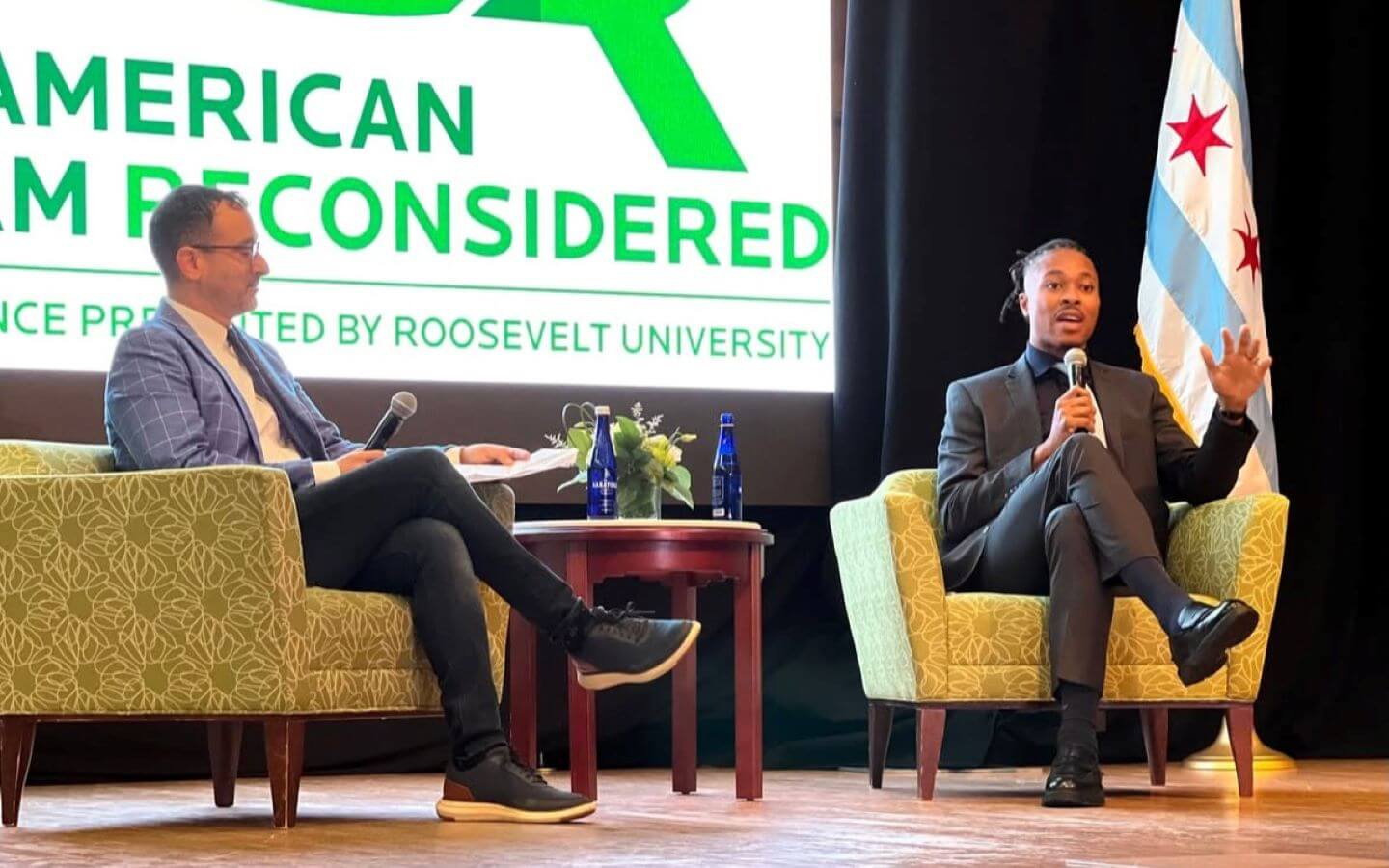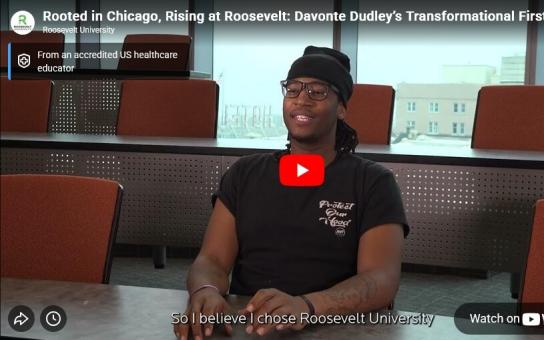
Last week, Roosevelt University hosted its annual American Dream Reconsidered Conference—a weeklong gathering for academics, historians and activists to discuss the nation’s past and how it informs our present moment. Students, faculty and staff were invited to attend lively panels and interviews organized conference, while a new exhibit in the Gage Gallery showcased the work of current students.
Titled “Franklin and Eleanor Roosevelt’s American Dream,” this year’s conference celebrated the University’s 80th anniversary by focusing on the institution’s namesakes. The Roosevelt administration expanded the social safety net and strived for sustained world peace, and each conference event thematically tied to an element of first couple’s political and social impact.
“This conference focuses on the critical issues at the heart of our political life and the current state of American democracy,” said Mike Maly, Provost and Executive Vice President of Academic Affairs during the conference’s kick-off. “At a time when our nation is increasingly divided politically, economically and socially, these questions are more urgent than ever.”
“The Democratic Party and American Politics”
The conference’s first event was a discussion between Malcolm Kenyatta, a Pennsylvania state legislator from Philadelphia and vice chair of the Democratic National Committee, and Roosevelt political science professor David Faris. Kenyatta discussed how the Democratic Party can oppose overreach from the Trump administration and use tactics such as eliminating the filibuster and expanding the Supreme Court to ensure the American political system is more representative. A hardier Democratic Party infrastructure can make this change possible, he said, and the path to success lies beyond a few powerful positions like president
“We need to be thoughtful and recognize that the challenge we have isn’t one position, but a 3,143-county challenge,” he said. “We need to build a 3,143-county apparatus. And I think we need to engage with the Democratic voters nationwide.”
A Celebration of the Humanities at Roosevelt: The Arts and Social Justice
The conference’s opening reception followed later that evening with a new collection works from Roosevelt photography and graphic design classes. The event’s discussion focused on the intersection of art and activism, with art historians Sue Taylor and Rehema Barber-Williams discussing multimedia’s ability to create emotional bonds between viewers and a political cause. Examples included the AIDS Memorial Quilt (which telegraphed the federal governments lack of response to an epidemic that primarily affected the LGBTQ community) and Kota Ezawa’s National Anthem series (which depicts various angles of the game San Francisco 49ers quarterback Colin Kaepernick took a knee to protest police brutality against Black Americans).
“Eleanor Roosevelt’s American Dream”
Another event included “Eleanor Roosevelt’s American Dream” with Allida M. Black. The Eleanor Roosevelt scholar discussed the first lady’s crucial role as a White House envoy due to her husband’s wheelchair confinement, her focus on racial justice and her post-presidency role as a member of America’s first United Nation’s delegation.
“The stereotype of Eleanor is that she was only the president’s eyes and ears and was not involved in policy,” said Black. “But she is much stronger and more complicated than that. She faced threats of violence due to her stances of racial equality, and she radically altered the national perception of what a first lady is capable of.”
Panels Inspired by the Past, Looking Toward the Future
Other panels inspired by President Roosevelt’s policies included:
- “Unions: Revitalizing a Legacy of the New Deal”: The first panel included Association of Flight Attendants President Sara Nelson and labor historian Nelson Lichtenstein as they discussed the slow degradation of union power in the late 20th century and how FDR accurately correlated workers’ rights to economic prosperity.
- “FDR and Americans with Disabilities.”: The second included a panel of current Roosevelt students balancing schoolwork with a disability, and how President Roosevelt’s accomplishments despite his polio diagnosis was an inspiration.
- “America and the World: From the Creation of the United Nations and NATO to the America First Agenda.” Inspired by FDR’s push to create the United Nations during his final years, the discussion by Roosevelt scholar David Woolner and international relations expert Adam Lupel touched on the UN’s role during a shift in global consumer power and ongoing conflicts including Russia-Ukraine and the violence in the Gaza Strip.
With enthusiastic audience participation and strong attendance, this year's American Dream Reconsidered conference proved to be another successful campus-wide event.


